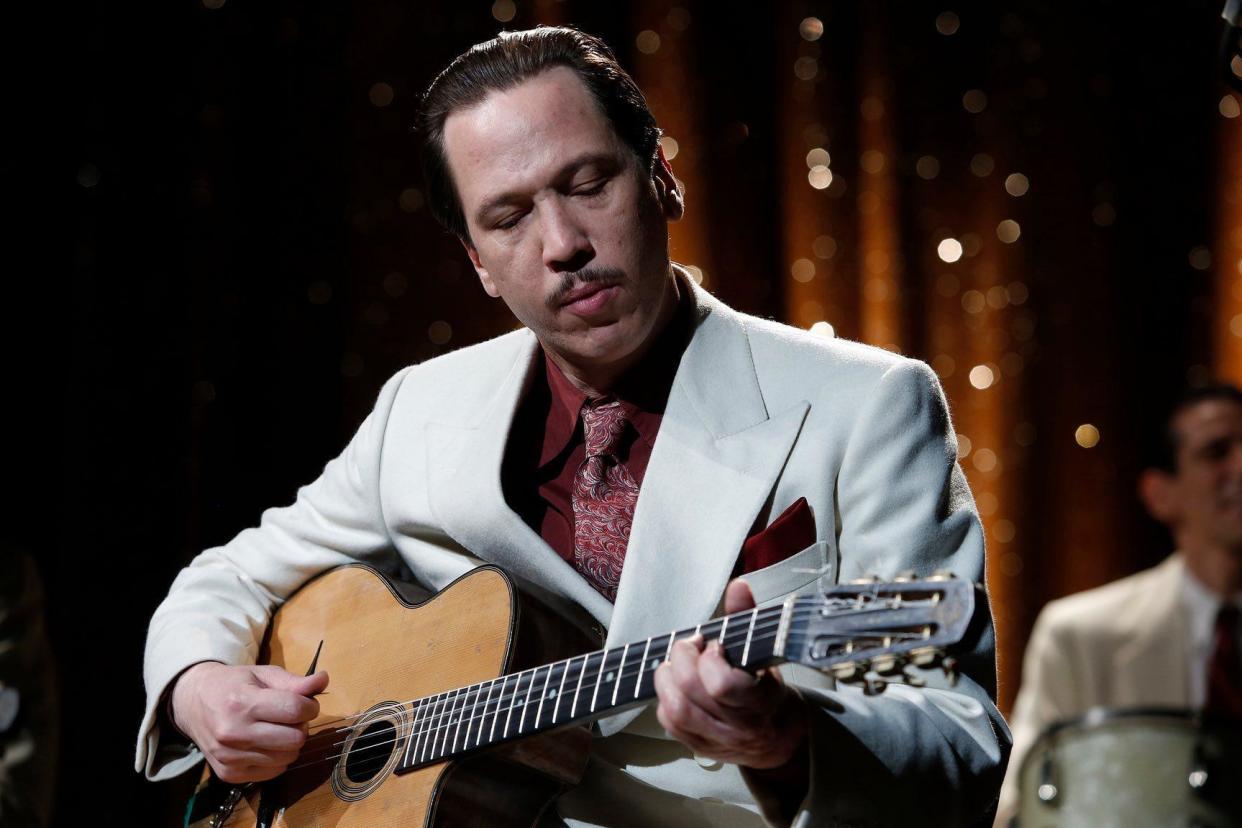Berling Film Festival 2017: Django, review – Wartime portrait of jazz great fails to strike a chord

The 67th Berlin Film Festival opened last night with gala speeches from the German culture minister, the city’s mayor and the festival director, all proclaiming that “rarely has a Berlinale programme captured the current political situation so intensely”.
Etienne Comar, co-writer and producer of Of Gods And Men but first-time director with this film about the great Gypsy jazz guitarist Django Reinhardt’s travails in Nazi-occupied France, obligingly confirmed that his movie has parallels with the contemporary situation, including the refugee crisis and Trump’s travel ban.
Reda Kateb (A Prophet) stalwartly plays Django as a man expressing himself only in his music (beautifully recreated here by the Rosenberg Trio). He doesn’t recognise a picture of Hitler and thinks this “gadjo” (non-Romani) war has nothing to do with him. However, as the Romani genocide gathers pace, he survives only because the Nazis, while condemning this “monkey music”, are wowed by his genius and want him to tour Germany, provided he can tone his work down.
He never can, once he starts playing. Swayed by his occasional girlfriend, Louise de Klerk (Cecile de France), a fictional character who works for the Resistance, Django, in a wholly improbable scene, ultimately uses his gifts for war work, distracting the Nazis at a grand reception in a villa near Switzerland, while a train is blown up and a British airman ferried to safety. Slow, heavy-handed, unfocused and episodic, Django lacks every virtue of Reinhardt’s own music. Moreover, while not sparing French collaborationists, its contemptuous portrayal of the Nazis is not far off that of Inglourious Basterds. It’s still disconcerting to see that in Berlin, launching a virtue-signalling fest.

 Yahoo News
Yahoo News 
